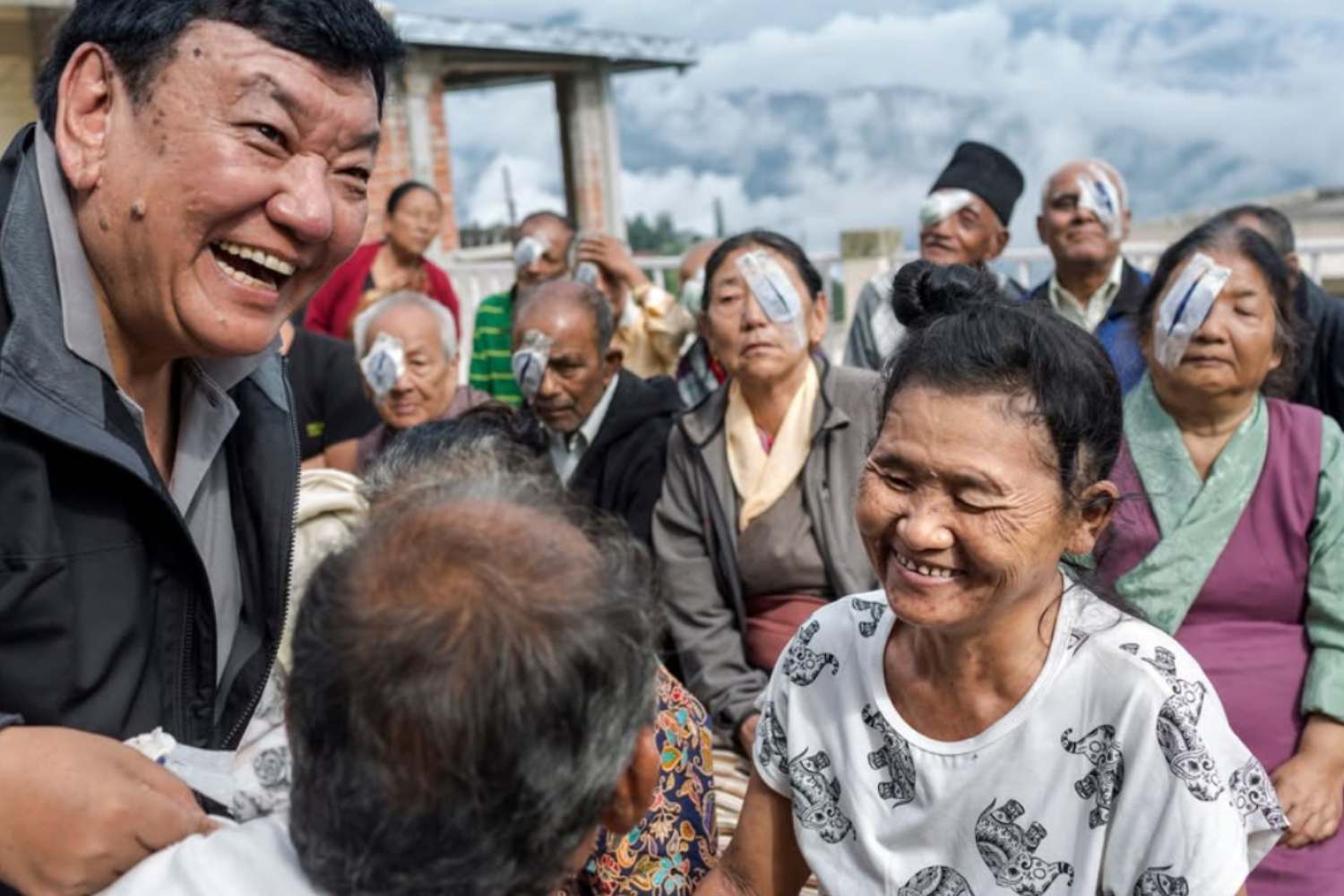Nepali ophthalmologist Dr. Sanduk Ruit restores sight to thousands worldwide with innovative, low-cost cataract surgery, transforming lives in Asia and Africa.

@sandukruitnepal/Instagram
Dr. Sanduk Ruit, a Nepali ophthalmologist often hailed as the “God of Sight,” has transformed the lives of over 100,000 people across Asia and Africa, giving them back the gift of vision. Through an innovative surgical technique and a deeply accessible approach, Ruit brings eye care to some of the most remote regions, overcoming both economic and geographic barriers that often block access to quality treatment.
Instead of working in modern hospitals, his team sets up makeshift operating rooms in isolated communities. Despite the challenging conditions, thousands regain their sight and return to independent lives, demonstrating how dedication and skill can reshape entire communities.
The SICS technique and its global impact
Ruit’s breakthrough lies in the Small Incision Cataract Surgery (SICS) he developed. This procedure requires no stitches, can be performed quickly, and is remarkably affordable. While a similar operation in wealthy countries can cost up to $3,000 (€2,750), Ruit performs it for just $25 (€23), thanks to locally produced lenses costing $4 (€3.70).
The result has been a dramatic drop in avoidable blindness in Nepal, a model later replicated in over 20 countries and even taught at prestigious institutions like Harvard.
Beyond surgery, Ruit co-founded the Tilganga Institute in 1994 with Australian surgeon Fred Hollows. The institute not only produces affordable lenses but also trains new surgeons. Through the Himalayan Cataract Project, in collaboration with Geoffrey Tabin, medical teams reach the most inaccessible areas. In Africa alone, more than 50,000 people receive care annually thanks to this sustainable model.
Personal tragedy fueling a lifelong mission
Ruit’s journey has not been without obstacles. He faces extreme altitudes, harsh climates, and rugged terrains to bring care where it’s needed most. His motivation is deeply personal: at 17, he lost his sister due to a lack of medical care, an experience that inspired him to dedicate his life to alleviating suffering caused by poverty.
Today, the institute performs around 2,500 surgeries a week, half of them free, spreading the culture of accessible healthcare. Ruit has received international accolades, including the Isa Award from Bahrain, yet he insists that the true reward lies in seeing the joy of patients, restoring their dignity, independence, and hope.
